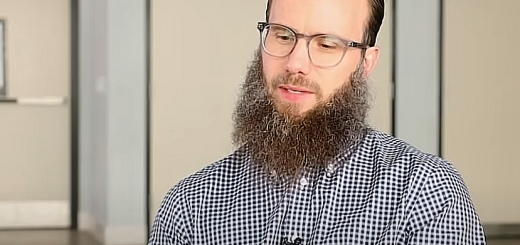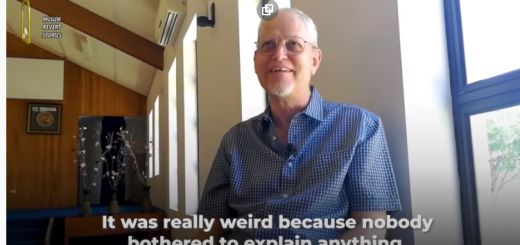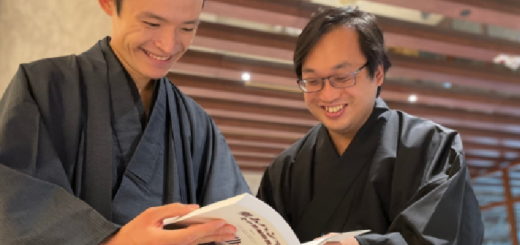To Stop Anti-Muslim Rhetoric, Media Coverage of Muslims Must Improve
To Stop Anti-Muslim Rhetoric, Media Coverage of Muslims Must Improve
Rowaida Abdelaziz
We live in an era where Islamophobia impacts almost every aspect of life. We see this on a grassroots level, where children are being bullied for their faith and employees are being discriminated at work. We see it institutionally, now more than ever, where Islamophobia prevails in policies and legislation coming from this administration. Understanding and covering Islamophobia as a reporter has also led me to understand how Muslims are covered as a community and the Islamophobia that steeps into the press as well.
The fact of the matter is that the relationship between mainstream and the greater Muslim-American community has been a long and tumultuous one. For years, Muslims in this country and abroad have been demonized and vilified, so much so, that such negative coverage has contributed to the contemporary levels of bigotry against Muslims. Today, assaults on Muslim-Americans have surpassed the levels 2001, the year of the Sept. 11th attacks where Muslims faced immediate backlash. From television to radio, to digital outlets, mass generalizations about Muslims are putting this community in danger on a regular basis, producing a climate where too many people feel emboldened to attack their neighbors.
There’s a low bar for Muslim representation in mainstream media, which often portrays the Muslim community as politicized and associates its members with war, terrorism, and foreign affairs. The coverage of Muslims is one-sided, reactionary and one dimensional. For the longest time, it seemed that Muslims only mattered when the news stories about them were political, foreign and overwhelmingly negative.
Many studies have demonstrated this. Data continues to show that coverage of the Muslim community across the globe is not only bleak, but it is also often riddled with conspiracy theories and factual inaccuracies. In the United States, 80 percent of news coverage of Muslims is overwhelmingly negative, according to Media Tenor, a media research organization, with the majority of coverage depicting Islam and Muslims as sources of violence and malice. A 2018 study by the Institute for Social Policy and Understanding found that perpetrators of violence who were perceived to be Muslim received seven times more media coverage than their non-Muslim counterparts.
The problem isn’t just with right-wing media who continue to espouse hateful and inflammatory propaganda against a faith group. Media organizations across the political spectrum have also indulged in similar narratives. In 2015, CNN host Don Lemon asked guest Arsalan Iftikhar, a Muslim American human rights lawyer, if he supported ISIS, for no reason other than the fact that Iftikhar is a Muslim. After the San Bernardino shooting in 2015, journalists from several national news networks swarmed the home of Syed Rizwan Farook and Tashfeen Malik, broadcasting close-ups of the items left behind — a Quran, a Muslim prayer rug and prayer beads. Suddenly these items meant for worship were equated with the tools of a terrorist.
Stories about Muslim women, in particular, are not any better — the majority of them still frame Muslim women around oppression or they are the victims of a savior complex. Muslim women are often spoken for and not spoken to. Visually, photos and headlines portray all Muslim women in one way, covered and depressed. Millions of women, black, brown, white, Latino, were erased and only one kind of Muslim was shown.
It is both the explicit and implicit ways media organizations choose to discuss and cover Muslims that have contributed to the ignorance of Islam as religion.
This type of coverage has an impact on how everyday Muslims across the country are perceived and treated. Anti-Muslim hatred is at an all-time high. Muslim students are bullied in schools, employees are being reprimanded for following their faith and in some instances, American Muslims have been murdered. On an institutional level, polices have been put in place to surveil and ban an entire faith group. Islamophobia goes beyond unfair coverage; it impacts people who are trying to live normal lives.
The sad truth is the majority of Americans say they don’t know a Muslim. But those Americans who do personally know a Muslim are more than twice as likely to have a favorable opinion toward Muslims than those who do not, according to a new report.
Purposeful, authentic Muslim representation, in which Muslims can express their opinions freely and without consequence, is desperately missing. American Muslims are leading the way and spurring new developments in a wide array of expertise: sports, politics, medicine, community organizing, and so much more.
We are at a crossroads in how Muslims are portrayed in the media. The accomplishments of Muslims are many and we are starting to see a glimpse of that change in the mainstream. Muslim politicians are speaking out as to how unfairly they are covered and even 2020 presidential candidates are visiting mosques and talking to Muslims — an unprecedented trend that is now becoming the new normal.
But the community is talking back and media organizations are finally listening. News organizations are taking a hard look at the diversity of their staff internally and the content they are producing externally. Journalists of color in newsrooms are increasing and media consumers are demanding stories of quality and accuracy.
We are beginning to see stories that challenge this one-dimensional coverage. We are celebrating coverage that is thought-provoking, challenging to the narrative and allows Muslims to be humans of faith, that struggle like any other faith community and that thrive just as much.
We hear presidential candidates say the word Islamophobia and news outlets pay attention to hate crimes when they occur. Muslim men and women are at the forefront of this change, as journalists like myself and in other fields — activism, politics, community leadership — and outlets are writing about it.
It is time to hold news agencies accountable for the information they are producing and the impact it has. It’s time to expect more from our reporters and to allow Muslims and all marginalized the communities to tell their stories with the dignity, respect and accuracy it deserves.
——————————-
About the Author: Rowaida Abdelaziz is a national reporter at HuffPost, where she covers Islamophobia and social justice issues that impact the Muslim-American communities. Based in New York City, Rowaida spearheads the coverage of Islamophobia in the newsroom and has reported on the intersection of anti-Muslim sentiment within politics, culture, and gender.
against Islam against Islam against Islam
Number of View :3212














